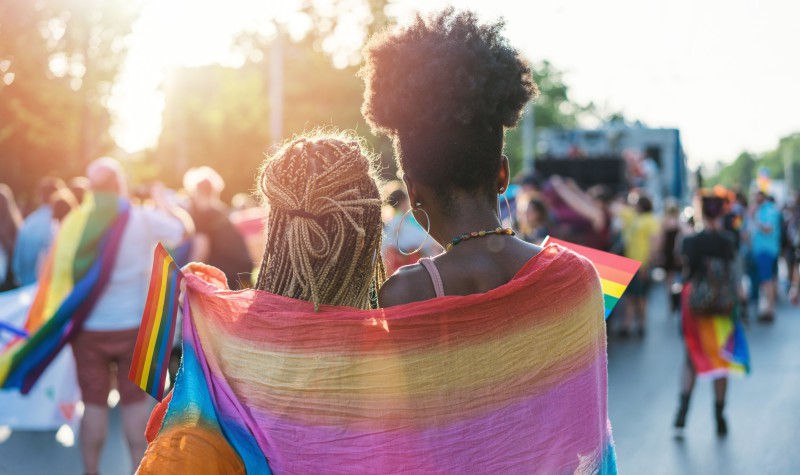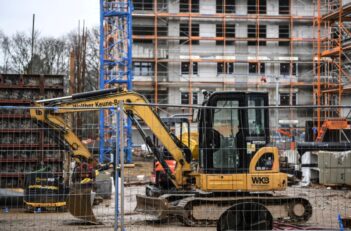
HUD enforces the Fair Housing Act to prohibit discrimination against LGBTQ individuals.
After being rejected numerous times by potential landlords when her identity documents did not match her gender, Angelica Butler, a transgender woman, reportedly spent years in and out of homelessness.
Stories like Angelica’s are not uncommon in the LGBTQ community. Under a new executive order, however, the Biden Administration is expanding protections for LGBTQ individuals by requiring federal agencies to prohibit discrimination on the basis of gender identity or sexual orientation. In a memorandum issued last month, the U.S. Department of Housing and Urban Development (HUD) announced that it would be the first agency to implement the executive order by enforcing the Fair Housing Act (FHA) to include LGBTQ protections.
President Joseph R. Biden relies on a broadened interpretation of the U.S. Supreme Court’s decision in Bostock v. Clayton County for the executive order. In Bostock, the Court held that discrimination on the basis of sex includes sexual orientation and gender identity under Title VII of the Civil Rights Act. According to the Biden Administration’s executive order, the Court’s decision also extends protections to LGBTQ people in areas such as housing and the FHA.
Expanding protections under the FHA—which already prohibits housing discrimination on the basis of race, color, national origin, religion, sex, familial status, and disability—could combat housing discrimination against members of the LGBTQ community. In addition, HUD’s action also allows more individuals to file fair housing complaints. Because the executive order modified the FHA’s definition of “sex” and follows Bostock to include gender identity and sexual orientation, LGBTQ individuals can now submit complaints alleging discrimination under these protections.
Furthermore, the department announced that it would investigate and continue to accept housing discrimination complaints based on sexual orientation or gender identity dating back to January 20, 2020, a year prior to President Biden signing the executive order. HUD officials reportedly received 197 complaints in 2020, but the department expects numbers to increase in light of the new enforcement policies.
If LGBTQ individuals believe they have been subject to discrimination, they can file complaints with HUD against any party involved in the housing process. Such discrimination, HUD explains, could arise when a gay man is evicted because his landlord believes he could infect other tenants with HIV/AIDS. It could also occur when a transgender woman is asked by the owner of her apartment building to refrain from wearing women’s clothing in common areas.
HUD’s recent enforcement policies arrive in light of a historic lack of protections for LGBTQ individuals in housing that have left many vulnerable to discrimination and with little recourse. Studies show that LGBTQ people are more likely to experience homelessness and face longer durations of housing instability than non-LGBTQ people. In particular, LGBTQ youth are 120 percent more likely to experience homelessness, and up to 40 percent of all homeless young adults identify as LGBTQ.
In addition, LGBTQ individuals with additional marginalized identities, such as people of color or individuals with disabilities, experience even higher rates of discrimination. For example, 17.6 percent of LGBTQ people with disabilities and 12.5 percent of LGBTQ people of color require public housing assistance, compared to 2.5 percent of non-LGBTQ individuals. In addition, Black transgender people face the greatest effects of housing instability within LGBTQ communities. More than 42 percent of Black transgender individuals experience homelessness at some point in their lives, compared to 30 percent of LGBTQ people generally.
LGBTQ advocates reportedly celebrated the Biden Administration’s executive order, especially in light of the previous Administration’s attempts to limit these protections.
“LGBTQ people can rest assured that if they are denied housing in an emergency or refused rental of an apartment because of their sexual orientation or gender identity, they will have recourse under federal law,” noted Alphonso David, president of the Human Rights Campaign.
HUD also announced that it is exploring how the executive order may affect other existing regulations and statutes. Longstanding housing issues within the LGBTQ community remain prevalent—many of which the COVID-19 pandemic has exacerbated.
These early actions by the Biden Administration, however, appear promising for addressing at least some of the longstanding housing discrimination related issues affecting the LGBTQ community. “Every person should be able to secure a roof over their head free from discrimination, and the action we are taking today will move us closer to that goal,” noted Jeanine Warden, acting assistant secretary of HUD’s Office of Fair Housing and Equal Opportunity.



